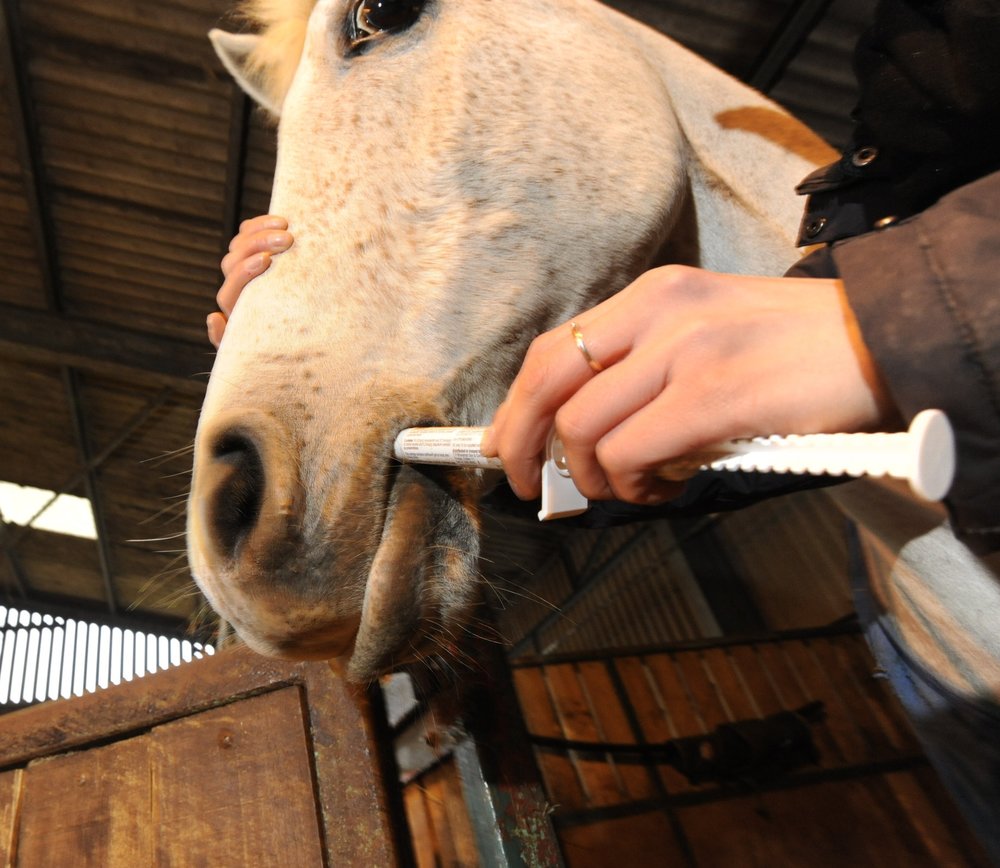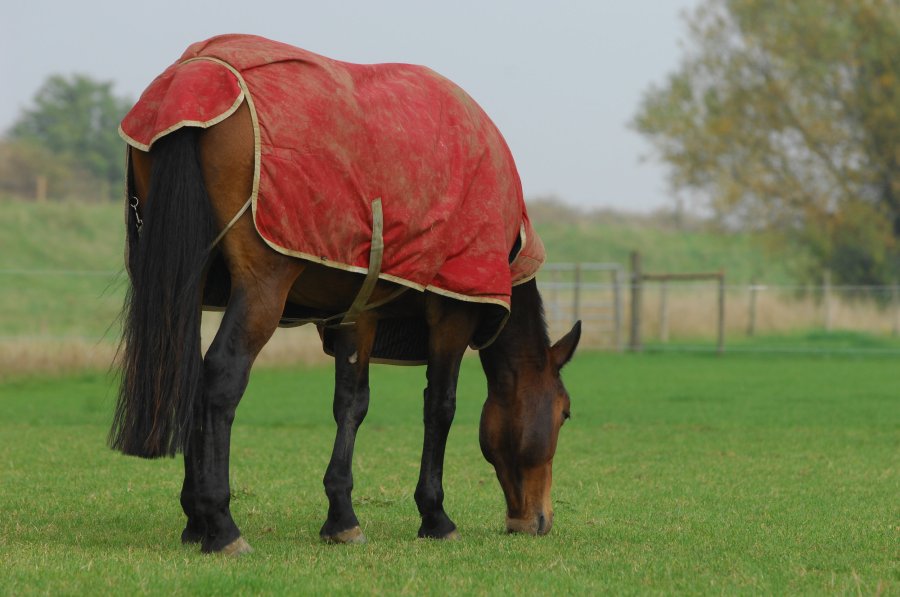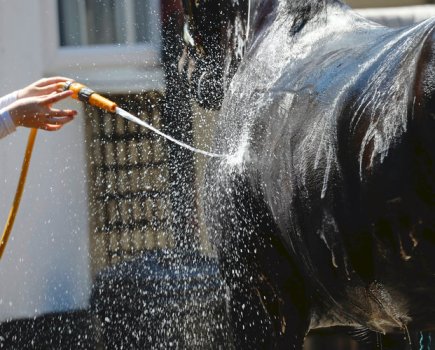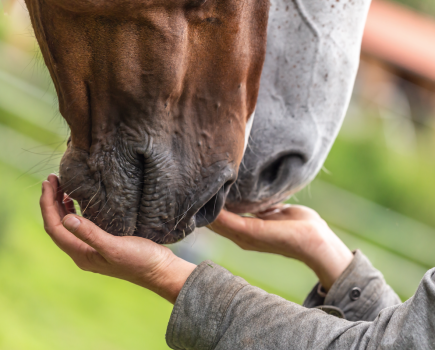Keep you veteran horse in good health all year round with this advice designed to help you ensure he stays full of life for longer.
The longer you own your horse, the more they become part of the family especially as we do our best to look after them and give them the best future possible. But as your horse ages and reaches his twenties or even thirties, you need to give him that extra TLC to keep him happy and healthy.
Feeding your veteran horse fibre
 As your horse ages his digestive tract become less efficient and his teeth become shorter, smoother or are lost altogether. This means he’ll find it harder to chew hay so to keep his fibre intake up, by offering fibre in an easy to chew form such as short chop feeds or chaff. To also make sure he has all the essential nutrients to keep him in optimum health, provide him with balanced veteran cubes that can be soaked to help with his digestion. To read more about forage http://bit.ly/2ghtB5S
As your horse ages his digestive tract become less efficient and his teeth become shorter, smoother or are lost altogether. This means he’ll find it harder to chew hay so to keep his fibre intake up, by offering fibre in an easy to chew form such as short chop feeds or chaff. To also make sure he has all the essential nutrients to keep him in optimum health, provide him with balanced veteran cubes that can be soaked to help with his digestion. To read more about forage http://bit.ly/2ghtB5S
Condition concerns in the older horse
It’s important to watch how his body changes as he ages. Of course his shape will alter as his muscle mass reduces with less exercise, but what you have to be aware of is his weight. To help you see if theres any subtle changes to his shape keep a regularly record of his weight by using a measuring tape and if concerned contact your vet.
Worming your veteran horse
 Veteran horses have a reduced resistance to worm infections, so keeping on top of your horse’s worm burden is important. This involves worming for encysted larvae in December or January, and covering or testing for tapeworm in spring and autumn. For the rest of the year use regular worm egg counts and only worm when an active burden is present. This will ensure your horse is worm-free, without overdosing on anthelmintics drugs, when they’re not required.
Veteran horses have a reduced resistance to worm infections, so keeping on top of your horse’s worm burden is important. This involves worming for encysted larvae in December or January, and covering or testing for tapeworm in spring and autumn. For the rest of the year use regular worm egg counts and only worm when an active burden is present. This will ensure your horse is worm-free, without overdosing on anthelmintics drugs, when they’re not required.
Equine vaccinations
Just like his teeth, your horse’s immune system starts to weaken as he ages, making it less efficient at fighting off infections. To try to minimise the risk of serious infection it’s important to keep an older horse’s vaccinations up to date, even if he’s not going to be travelling anywhere. Also don’t forget about tetanus as this is in the environment such as soil, meaning infection can occur, even through minor cuts and abrasions when he’s turned out in the field.
Dental checks
Horses as they age can become more prone to dental problems. Loose teeth can shift, causing ulceration in the mouth and may eventually fall out, leaving a gap behind. Diastema (gaps in between the teeth) can become packed with feed and cause painful gum disease. It’s therefore really important that teeth are checked and routine dental care is undertaken regularly to pick these problems up early.
Think about your horse’s feet
Even if your horse isn’t still in work it’s important to keep an eye on his hooves and to maintain regular foot trimming to keep his feet in good condition and avoid putting extra strain on joints and tendons which are less elastic when your horse is older. A well cared for foot is also less likely to crack, which reduces the risk of foot abscesses and lameness problems.
Keep your horse’s joints supple
To prevent his joints becoming stiff and creaky, exercise is key. It doesn’t have to be ridden work, as simple in-hand walking or daily turnout will help. Exercise will also keep his mind active and give him a purpose. To boost his mobility try adding a joint supplement to his daily feed.
 Give him an MOT
Give him an MOT
To confirm he’s fit and well or to spot any issues, ask your vet to give your horse a regular check-up. In some cases, this may include a blood sample to screen for underlying conditions that might not obvious until later.









